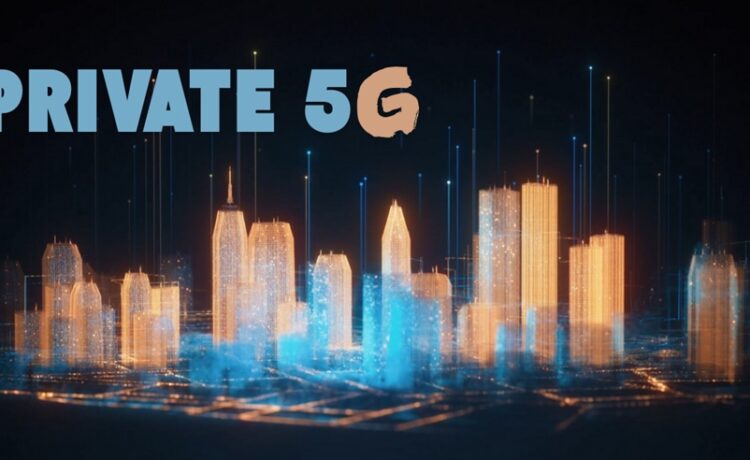In today’s world, businesses are increasingly looking for reliable, fast, and secure ways to stay connected. A big decision many organizations face is choosing between private 5G networks or traditional Wi-Fi. This decision is not as easy as it might seem. Both technologies offer distinct benefits and drawbacks depending on what your business needs. So, now let us see Private 5G vs. Wi-Fi Which One Is Right for Your Business along with Accurate LTE RF drive test tools in telecom & Cellular RF drive test equipment and Accurate Mobile Network Monitoring Tools, Mobile Network Drive Test Tools, Mobile Network Testing Tools in detail.
What Is Private 5G?
Private 5G is a dedicated, non-public cellular network that businesses can manage on their own or with the help of a service provider. Unlike traditional public networks, private 5G allows businesses to have complete control over their data and network traffic. With private 5G, companies can ensure a reliable connection with consistent speeds, even in challenging environments.
The Key Benefits of Private 5G
- High-Speed Connectivity
Private 5G provides ultra-fast data transfer speeds, allowing businesses to handle large amounts of data, such as real-time analytics or IoT device communication, without performance issues. - Low Latency
Latency refers to the delay in transmitting data. Private 5G offers extremely low latency, which is essential for time-sensitive tasks like video conferencing, remote monitoring, and machine control. - Enhanced Security
Since private 5G networks are not publicly accessible, they are less vulnerable to cyberattacks. With features like end-to-end encryption and SIM card authentication, private 5G provides a secure environment for sensitive business data. - Customization
Whether it’s adjusting coverage areas, bandwidth, or security settings, private 5G offers flexibility that traditional Wi-Fi networks cannot match. - Remote and Outdoor Coverage
Private 5G is ideal for remote locations or outdoor spaces where Wi-Fi struggles. Whether it’s an industrial site, construction area, or smart city, private 5G can provide seamless coverage. - IoT Integration
Private 5G networks are perfect for IoT (Internet of Things) applications. They can handle thousands of devices connected to the network simultaneously, ensuring smooth and reliable communication.
Potential Challenges of Private 5G
While private 5G has many benefits, it’s not without its challenges. One of the main hurdles is the high initial cost of setting up the infrastructure, which can include base stations and antennas. Additionally, private 5G networks often cover smaller areas than public networks, which can be a limitation for large businesses that require broader coverage.
What Is Wi-Fi?
Wi-Fi has evolved significantly, with new versions like Wi-Fi 6 offering faster speeds, reduced latency, and the ability to handle more devices at once.
Advantages of Wi-Fi for Businesses
- Lower Initial Costs
Wi-Fi networks are typically cheaper to set up than private 5G networks. Wi-Fi routers and access points are less expensive, making Wi-Fi a more affordable option for businesses looking for a quick and cost-effective solution. - Convenience
This allows for greater mobility within a certain area, making it a good choice for businesses that need flexibility. - Support for Multiple Devices
Wi-Fi 6 can support a larger number of devices simultaneously, making it a good choice for businesses with many employees or customers needing internet access. - Improved Speeds and Performance
Wi-Fi 6 provides faster speeds and lower latency compared to older Wi-Fi standards. It improves overall network performance, especially in environments with multiple devices connected at the same time.
Challenges of Using Wi-Fi
While Wi-Fi has its benefits, there are several challenges businesses need to consider:
- Interference
Wi-Fi networks can experience interference from physical barriers like walls and metal structures, as well as from other electronic devices. This can affect signal strength and range. - Security Risks
Wi-Fi networks are often more vulnerable to security breaches compared to private 5G networks. Without strong encryption and authentication, Wi-Fi networks can be exposed to hacking and unauthorized access. - Limited Range
Wi-Fi coverage is limited by the range of access points, which can result in weak or unreliable connections, especially in large or complex environments. - Dependence on Infrastructure
Wi-Fi networks require careful planning and regular maintenance. To ensure good coverage and performance, businesses need to invest in high-quality routers, repeaters, and other network devices.
Private 5G vs. Wi-Fi: Which One Should You Choose?
When deciding between private 5G and Wi-Fi for your business, it’s important to consider your specific needs. Both technologies have their advantages and drawbacks, and the right choice will depend on factors like:
- Coverage Area
If your business operates in a large outdoor area or remote location, private 5G may be the better option. Wi-Fi, on the other hand, is better suited for smaller indoor spaces. - Number of Devices
If you need to support a large number of connected devices, private 5G’s high bandwidth and low latency make it ideal. Wi-Fi 6 can also handle many devices, but its performance may degrade if too many devices are connected at once. - Security Requirements
If security is a top priority, private 5G offers superior protection due to its encryption and secure protocols. Wi-Fi networks, especially public ones, may be more vulnerable to security threats. - Cost Considerations
If your budget is limited, Wi-Fi may be the more affordable choice. Setting up and maintaining a private 5G network can be expensive, though the investment may be worth it for businesses that require higher performance and security.
Conclusion: Which Technology Is Right for Your Business?
Private 5G and Wi-Fi each offer distinct advantages. Private 5G excels in terms of security, low latency, and scalability, making it ideal for industries with high-performance requirements like manufacturing, healthcare, and smart cities. Wi-Fi, on the other hand, remains the go-to solution for most businesses, offering a cost-effective, reliable option for everyday tasks.
For businesses that need both high security and high performance, a hybrid approach that combines private 5G for critical applications and Wi-Fi for everyday connectivity may be the best solution.
Consider your coverage area, number of connected devices, and security requirements to make an informed decision.
About RantCell
RantCell simplifies network testing and monitoring with its simple mobile app, enabling users to measure critical metrics like signal strength, download speeds, and latency directly from their smartphones. Tailored for telecom operators and businesses, RantCell’s cloud-based platform provides a streamlined, cost-effective alternative to traditional hardware-dependent solutions.
Whether in urban hubs or remote areas, RantCell ensures accurate, consistent results while simplifying testing and reporting with its user-friendly design. Also read similar articles from here.







